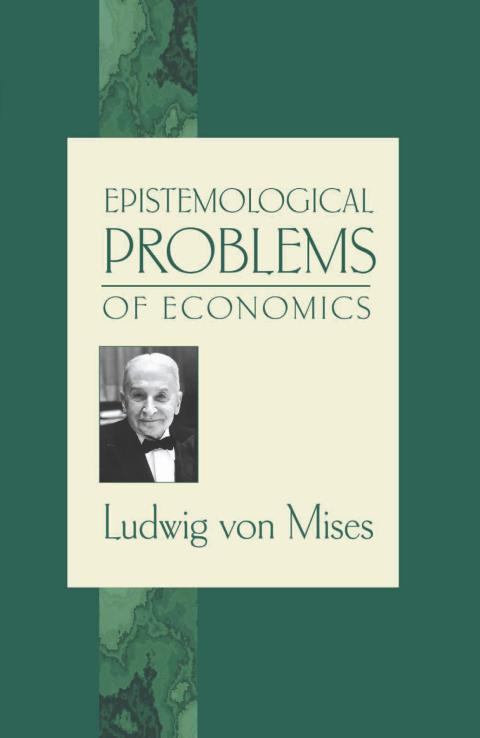
Epistemological Problems of Economics
“The characteristic feature of this age of destructive wars and social disintegration is the revolt against economics.”
So writes Ludwig von Mises in his most thorough defense of the method and scope of economic science. In this treatise, he argues that the core intellectual errors of statism, socialism, protectionism, racism, irrationalism can be found in a revolt against economic logic and its special character.
What Mises identified persists to this day, as politicians, central bankers, intellectuals continue to deny that economic reality is anything with which they should concern themselves. Mises’s writings here appear as a wake up call. There is no denying economic reality any more than we can deny gravity or some other force of nature. Economic law is a force that cannot and will not be ignored, no matter how much people try.
Epistemological Problems of Economics was original published in 1933, a period when the social sciences and economic policy were undergoing upheaval. The classical view of economics as a deductive science, along with the laissez-faire policies implied by that view, were being displaced by positivism and economic planning. Mises set out to put the classical view on a firmer foundation. In so doing, he examines a range of philosophical problems associated with economics. Mises goes further to delineate the scope of the general science of human action.
This treatise, out of print for many years, is brought back by the Mises Institute in a 3rd edition, with a comprehensive introduction by Jörg Guido Hülsmann.
Hülsmann observes that “the great majority of contemporary economists, sociologists, political scientists, and philosophers are either completely unaware of Mises’s contributions to the epistemology of the social sciences or think they can safely neglect dealing with them. They are in error. One can ignore a thinker, but the fundamental problems of social analysis remain. There will be no progress in these disciplines before the mainstream has fully absorbed and digested Mises’s ideas.”

